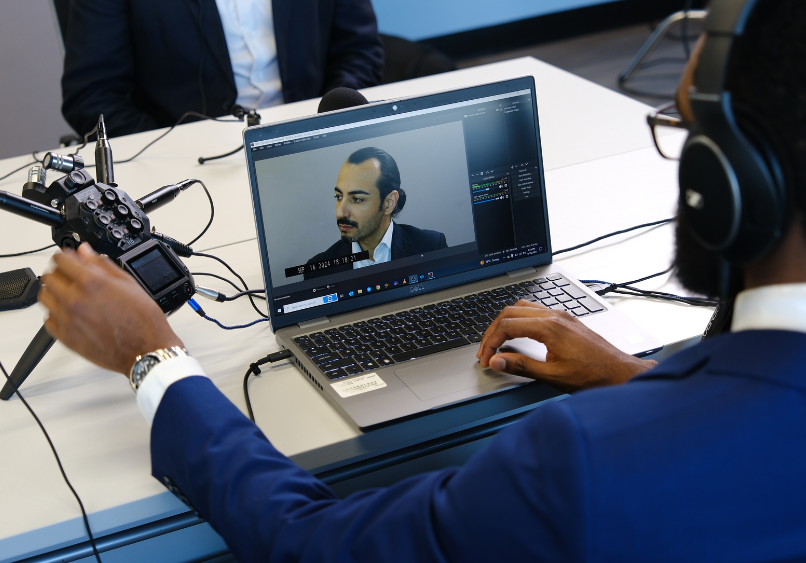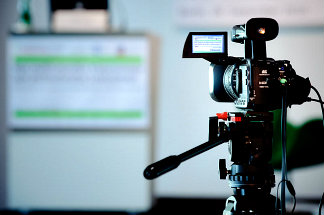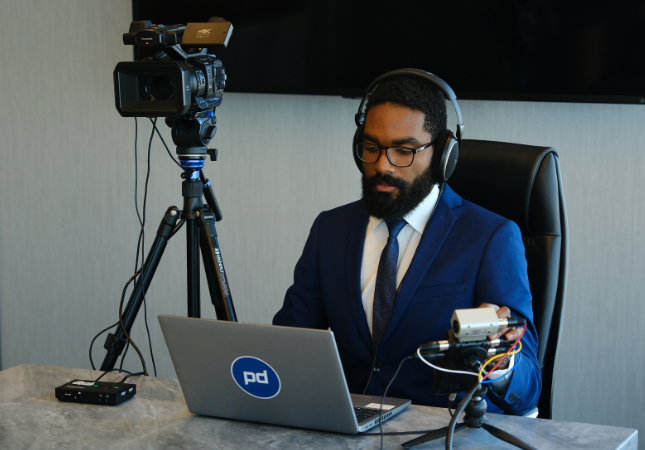The Value of Legal Video Clip Depositions in Modern Legal Services: What You Must Know
Legal video clip depositions have become vital in today's legal landscape. They provide a multidimensional view of witness statements that standard records merely can not match. By capturing both non-verbal and verbal interaction, these depositions improve the total understanding of a witness's credibility. The efficiency of video depositions hinges on various factors, including compliance with legal requirements and ideal techniques. Discovering these aspects exposes their true importance in modern lawful solutions
What Are Legal Video Depositions?
Lawful video clip depositions act as an important device in the litigation process. They involve recording witness statements in a video clip format, catching both non-verbal and spoken communication. This technique permits lawyers to document the disposition, expressions, and reactions of witnesses, giving a richer context for the testimony. Normally carried out in a regulated environment, these depositions are led by attorneys that ask inquiries while a court reporter records the discussion. The resulting video clip can be essential for trial prep work, as it makes it possible for attorneys to analyze the credibility of witnesses and refine their techniques. In addition, legal video depositions can be used in various lawful contexts, ranging from civil disputes to criminal instances. The visual and auditory elements of video clip depositions enhance the discussion of proof, making it a necessary element in the modern lawful landscape. Generally, they contribute considerably to the performance and effectiveness of lawful process.

Benefits of Video Depositions Over Typical Methods
Video depositions provide countless benefits contrasted to standard approaches of taking witness statements. One considerable benefit is the capability to capture both aesthetic and audio aspects, offering a much more detailed record of the witness's declarations. This dual layout improves clearness and allows lawyers to reference specific subtleties throughout test preparation. Additionally, video depositions promote remote involvement, making it simpler for witnesses who might be inaccessible for in-person looks as a result of geographical restraints or wellness issues.Moreover, video depositions can accelerate the general deposition procedure, lowering the moment and prices connected with traveling and logistics. They likewise enhance ease of access, as videotaped depositions can be quickly shared amongst legal teams and referenced any time. This comfort contributes to far better case management and preparation. In general, video depositions stand for a modern, effective technique to gathering witness testaments, aligning with the advancing demands of the lawful profession.
The Function of Body Language and Tone in Testimonies

In legal video depositions, body movement and tone play crucial functions in sharing a witness's credibility and credibility. Nonverbal cues can supply understandings into a witness's mood, affecting just how their testimony is viewed. Comprehending the impact of these aspects is important for attorneys and jurors alike when assessing the integrity of a statement.
Nonverbal Interaction Insights
While spoken interaction is often emphasized in lawful testimonies, nonverbal cues such as body movement and tone play a necessary role in conveying integrity and emotion. Viewers of depositions might keep in mind that a witness's stance, gestures, and facial expressions can greatly affect assumptions of dependability. As an example, constant eye get in touch with might indicate self-confidence, while staying clear of look might suggest deceit or pain. The tone of voice-- its pace, quantity, and pitch-- can pass on feelings of sincerity or unpredictability. Legal specialists have to be attuned to these nonverbal signals, as they usually provide crucial context that matches talked words. Recognizing these nuances can boost the performance of depositions and affect the outcome of legal procedures.
Psychological Tone Effect
The emotional tone shared during lawful statements greatly affects exactly how a witness is regarded. Body movement, vocal inflections, and faces play crucial duties fit the narrative of a testimony. A witness showing self-confidence via steady eye contact and a calm tone can infuse a feeling of integrity and engagement. Alternatively, signs of anxiety, such as fidgeting or a shaky voice, might lead to apprehension concerning their account. The nuances of psychological expression can influence the analysis of realities, making it important for lawful specialists to acknowledge these hints. In video clip depositions, the visual and auditory elements combine, highlighting the importance of emotional tone in sharing sincerity and truthfulness within the lawful process.
Reliability and Credibility
A vital variable in developing credibility and trustworthiness throughout statements depends on the witness's body language and intonation. Observers typically rely upon non-verbal cues-- such as eye call, stance, and gestures-- to analyze a witness's sincerity. For circumstances, a witness that maintains eye contact and presents open body movement visit their website might be viewed as even more honest and reputable than one who stays clear of eye contact or appears shut off. Furthermore, intonation plays a necessary role; a stable, tranquil tone can reinforce the reliability of the testament, while fluctuations in pitch or quantity might elevate uncertainties. Inevitably, the mix of body language and singing tone significantly affects just how a witness's declarations are obtained and analyzed in a lawful context.
Finest Practices for Carrying Out Video Depositions
Conducting video clip depositions requires cautious planning and execution to assure a efficient and clear discussion of testament. First, it is necessary to pick a silent, well-lit area to reduce disturbances and protected ideal video high quality. The tools must be checked beforehand, consisting of cams, microphones, and lights, to avoid technical problems during the deposition.Next, parties involved have to assess the format and procedures in advance, making certain that everyone recognizes their duties. The deponent needs to be informed on the process, including exactly how to react plainly and concisely.Additionally, keeping an expert demeanor throughout the session is essential. This consists of avoiding from speaking over one another and verifying that all concerns are directed suitably. Lastly, it is vital to tape-record the deposition in a style that permits for very easy playback and review, protecting the honesty of the testimony for future use.
Legal Considerations and Conformity Issues
Exactly how do legal considerations and compliance concerns impact the performance of video clip depositions? Attorneys should browse a complicated landscape of regulations, ensuring that video depositions follow jurisdictional guidelines and requirements. Conformity with legislations concerning personal privacy, approval, and tape-recording approaches is necessary. As an example, obtaining specific authorization from all events involved is required to stay clear of legal repercussions.Additionally, the admissibility of video clip evidence in court can pivot on conformity with procedural needs. Ensuring that the devices made use of satisfies technological requirements is likewise important, as low quality can undermine the deposition's reliability.Moreover, attorneys need to recognize any type of details state legislations that control video clip depositions, as these can vary greatly. Failing to address these considerations can not just threaten the honesty of the deposition yet likewise affect the general case approach, inevitably impacting the customer's legal end results.
How Video Clip Depositions Impact Jury Assumption
While video clip depositions can function as powerful tools in legal process, their impact on jury perception is significant. The auditory and visual aspects of video recordings offer jurors with a much more comprehensive understanding of witness attitude, reputation, and emotional reactions. This multimedia approach can enhance the jurors' ability to evaluate the dependability of testimony contrasted to traditional text-based transcripts.Moreover, video clip depositions permit jurors to observe body language, intonation, and faces, all of which can affect their interpretation of the witness's declarations. The existence of a witness on screen can humanize them, fostering empathy and link, which may persuade jurors' point of views. On the other hand, a witness that appears evasive or unreliable on video clip might bring about link adverse understandings that affect a court's decision. Inevitably, the vibrant nature of video depositions plays a vital role in shaping just how jurors analyze evidence and reach their verdicts.
The Future of Video Clip Depositions in Legal Practice
As developments in innovation remain to reshape the legal landscape, the future of video depositions is poised for significant advancement. Innovations such as expert system, digital reality, and enhanced video conferencing devices are anticipated to enhance the deposition process and improve access. Legal experts might use AI-driven analytics to evaluate witness trustworthiness and case toughness a lot more effectively.Moreover, the assimilation of digital reality could enable courts to experience immersive simulations of depositions, providing deeper context and understanding. In addition, the fad towards remote depositions is most likely to continue, providing higher flexibility for customers and lawyers alike.As remote work becomes increasingly normalized, video depositions will likely come to be common technique, minimizing costs and time restraints connected with conventional methods. On the whole, these technical innovations guarantee to boost the effectiveness, effectiveness, and access of video depositions in legal method, inevitably changing how lawyers get ready for trial.
Often Asked Questions
Just How Much Do Lawful Video Depositions Commonly Expense?

Can Video Depositions Be Utilized in Any Kind of Situation?
Video clip depositions can be utilized in different sorts of instances, including civil, criminal, and family members regulation. Their adaptability permits lawyers to present witness statements efficiently, adjusting to the specific needs of different lawful scenarios.
What Equipment Is Needed for a Video Deposition?
To perform this hyperlink a video clip deposition, important devices consists of a high-grade video camera, microphone, illumination, and a trustworthy recording tool. Additionally, a computer with editing software application may be required for post-production and formatting the last video clip.
The length of time Does a Typical Video Deposition Last?
A common video deposition lasts between two to four hours, depending on the complexity of the case and the number of inquiries posed. Extensive sessions might take place, yet breaks are generally included for individual comfort.

Are Video Clip Depositions Admissible in Court?
Video depositions are typically acceptable in court, offered they stick to legal standards and regulations of proof. Their usage improves clearness and maintains witness testimony, aiding in the judicial process throughout trials and hearings. Lawful video clip depositions have become important in today's lawful landscape. In addition, lawful video depositions can be utilized in numerous legal contexts, ranging from civil disagreements to criminal instances. Furthermore, video depositions promote remote engagement, making it much easier for witnesses who might be not available for in-person appearances due to geographical restraints or health and wellness issues.Moreover, video depositions can quicken the total deposition procedure, lowering the time and prices linked with travel and logistics. Ensuring that the tools utilized meets technological standards is additionally essential, as inadequate high quality can undermine the deposition's reliability.Moreover, lawyers must be mindful of any type of certain state laws that control video depositions, as these can vary significantly. Additionally, the fad towards remote depositions is most likely to linger, offering higher adaptability for clients and lawyers alike.As remote job becomes progressively stabilized, video depositions will likely come to be typical technique, minimizing expenses and time restraints associated with traditional techniques.